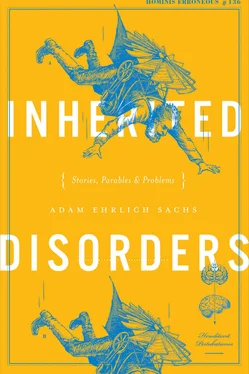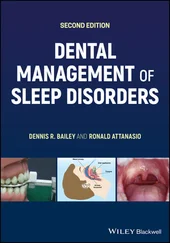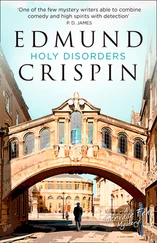His reluctance was justified: his son instantly instituted changes at every stage of the winemaking process, from growing to bottling. The famed family Shiraz was altered beyond recognition. The son assured his father that the changes were for the better: they were “innovations.” The father, on the other hand, who had been making Shiraz his way for thirty years, was certain that his son was making unnecessary changes simply to “make his mark,” to demonstrate his autonomy. And the wine, he believed, would suffer for it.
But they awaited the final judgment of Robert Parker’s newsletter. A 99 or 100 would vindicate the son. A 97 or below would vindicate the father. And another 98 would reveal to them the ridiculous, almost ceremonial aspect of their intergenerational conflict, a ritual that had little to do (or so a 98 Robert Parker score would indicate) with the actual quality of the wine.
The newsletter arrived. They opened it nervously, but were perplexed to find in it no numbers at all. A note explained that control of the newsletter had passed from Robert Parker to his son, David, who had replaced his father’s outmoded numerical rating system with an updated star-based system. “There is no basis of comparison,” he wrote, “between my dad’s numerical rating system and my star-based system. Our systems are fundamentally incommensurable. There is no common measure. They cannot be converted, they cannot be translated. They do not communicate. Each constitutes its own self-contained, self-consistent, sealed-off world of wine opinion.”
The prized Barossa Valley Shiraz was awarded seven stars by David Parker. How that compares to a Robert Parker score of 98 is unknown. The father and son have no one else to appeal to in order to adjudicate their dispute.
…………………….
The estate of an author who died thirty years ago has sued the young author of a book whose style and theme are so derivative of the dead man’s that the latter must be considered, they claim, the true author of it, despite being dead.
The young author, whose father happens to be an eminent intellectual property lawyer, has countersued on interesting grounds. He concedes that his book’s style and theme are those of the dead author, but denies stealing them. Rather, he claims that the author’s style is so potent and his theme so forcefully expressed that they were, in fact, imposed onto him against his will. The year during which he read every word the dead author had ever written (which at the time seemed like the most liberating year of his life, and which led to his quitting law school and taking up fiction) was really, in retrospect, a period of extreme emotional, psychological, and intellectual abuse. The countersuit also accuses the dead author of what it refers to as “conceptual and categorical abuse,” or abuse in which the abuser’s concepts and categories are inflicted on the abused, who comes to view them as intrinsic to the nature of things and can no longer think about reality in any other terms. The defendant’s father — who has had a personal animus toward the dead author ever since his son quit law school, for which he was uniquely well suited — even introduced an insinuation of sexual impropriety, claiming that the dead author “forcibly inserted his conceptual scheme” into the then twenty-four-year-old’s head.
On the fourth day of the trial, the young author took the stand. No one could deny that when he opened his mouth the dead author’s thoughts fell out, expressed in the dead author’s unmistakable tone and syntax, premised on his concepts and categories. But was this a case of conceptual theft or conceptual abuse ? Had a vigorous young man stolen the work of a vulnerable dead author, as the estate maintained, or had a vigorous dead author pressed himself upon a vulnerable young man, as his father contended?
The case ultimately hinged on whether there was some pith, some essence of the young man underneath all that extrinsic thought and foreign insight. If yes, then the pith, the essence, could be held responsible for plagiarism. If no, if the dead author’s thinking went all the way down, so to speak, if there was no person there to do the impersonating, then the young man, who did not exist, could hardly be considered anything but a victim. So the lawyer was put in the uncomfortable position of arguing that his son, his erstwhile pride and joy, was now nothing more than a vehicle for the dead author’s thoughts, while the estate had to argue that the young man existed in a more substantive fashion than his own father gave him credit for. The young man monitored all this with the dead author’s wry detachment and the dead author’s death-haunted fatalism.
The jury is expected to deliver a verdict later today.
…………………….
For most of his life, Nathan was referred to as “the son of the famous atonal composer.” Even after three well-regarded jazz albums of his own, none of them atonal, Nathan was still referred to as the “the son of the famous atonal composer.” No matter what I accomplish in my life, Nathan told friends, I will always be referred to as “the son of the famous atonal composer.” Today, however, he is almost universally referred to as “that jazz trumpeter who took out his penis on an airplane.”
…………………….
A medical student, the son of a famous obesity scientist and himself a budding obesity scientist, began a relationship about three years ago with an obese paralegal. This huge paralegal had no redeeming qualities, according to the medical student’s friends. When asked why he was dating her, he would simply say that he liked the sensation of being crushed by the colossal paralegal.
Everyone suspected the medical student of somehow rebelling against his father, the legendary obesity scientist, the very first to call obesity an epidemic, but the medical student assured everyone that, no, he just enjoyed the sensation of being physically crushed by this genuinely enormous and not especially friendly paralegal.
Finally he proposed to her. His father at first refused to attend the wedding, but at the last second he had a change of heart and sped to the synagogue. Halfway there he was struck by a garbage truck and killed. On hearing the news, the medical student, breathing what to more than one guest seemed like a sigh of relief, stopped the wedding. His friends and family assumed he would break off the engagement and settle down with a woman of normal dimensions. But as of now the medical student is still engaged to the paralegal, and she is apparently bigger than ever.
70: THE OTTOMAN HISTORIAN’S HEAD
…………………….
Nearing the end of his long life, the Ottoman historian began hinting to his two sons, in ways subtle and not so subtle, that he wished to be cryogenically frozen upon his death, and resurrected whenever the needed technology became available. By the very end the historian managed to steer every single conversation toward his own cryogenic freezing and subsequent resurrection. His sons were taken aback. For years he had spoken about the fullness and richness of his life, the importance of dying gracefully, and so on. But now the Ottoman historian’s eyes glimmered with fear and he often cried, apropos of nothing, “Freeze me!”
I doubt any two sons have ever agreed on the question of their father’s cryogenic freezing. These two were no exception. The older brother was vaguely pro-freezing, the younger brother stridently anti-freezing. He, the younger, stressed the exorbitant cost of the procedure, the great absurdity and indignity of it, the unlikelihood that it would even succeed. He implied that their father — who during this very conversation sat on a couch in the other room yelling, “Put me in a special freezer!”—was not in his right mind. The older brother countered that neither of them could grasp the unfathomable terror of imminent nonexistence. The eleventh-hour urge to be frozen was probably completely rational, he said, something that would one day seize them, as well.
Читать дальше












